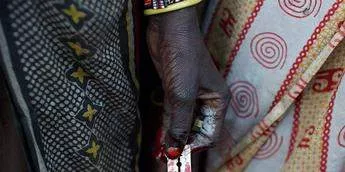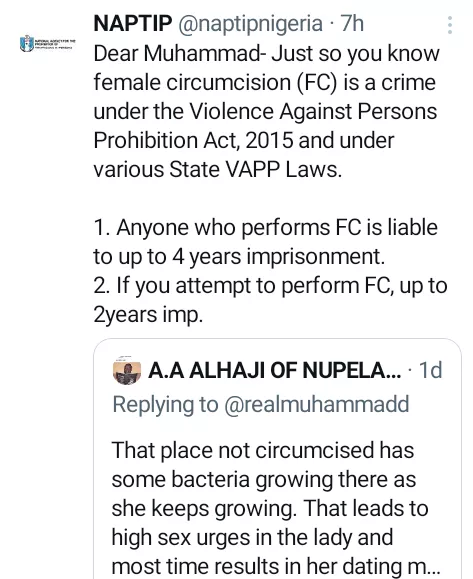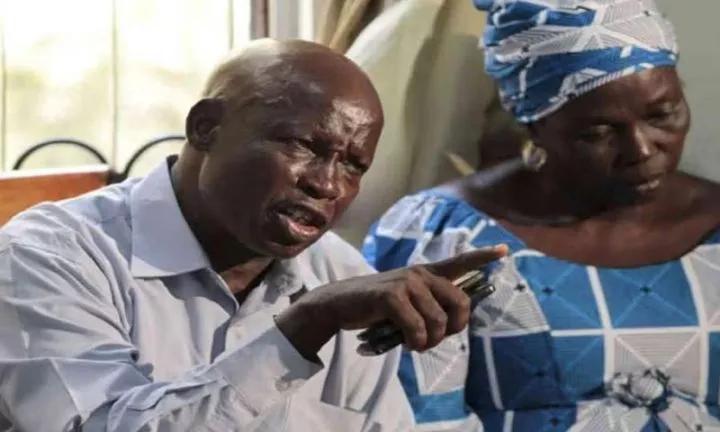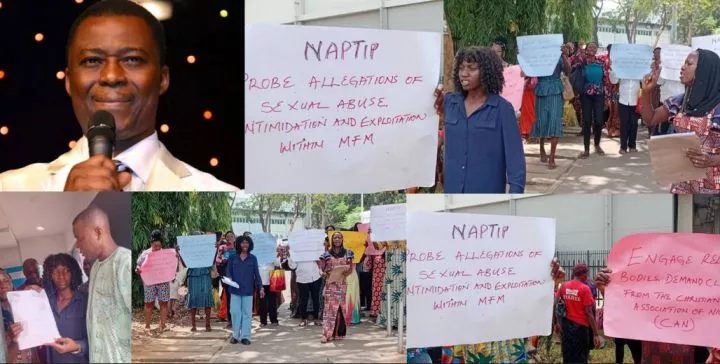![Gambian women recently protested against the move by the country's lawmakers to reverse the ban on FGM. [NBC] Gambian women recently protested against the move by the country's lawmakers to reverse the ban on FGM. [NBC]](https://static.netnaija.com/i/APK4O5blN0B.webp)
The Gambia's parliament has voted to advance a bill that could potentially lift the existing ban on female genital mutilation (FGM), positioning the West African nation on the brink of becoming the first country globally to legalize the practice, thereby affecting millions of women and girls.
The legislative move has sparked intense backlash from activists and human rights organizations.
The proposal, which seeks to repeal the 2015 legislation that criminalized FGM, sentencing violators to up to three years in prison, saw a dominant majority vote of 42 to four in favour of its advancement on Monday, March 18, 2024.
The argument in favour of FGM
Almameh Gibba, the parliamentarian responsible for introducing the contentious bill, defended the motion by arguing it was an effort to preserve citizens' rights to "practice their culture and religion" in the predominantly Muslim country.
Gibba emphasized the bill's intent to "uphold religious loyalty and safeguard cultural norms and values."
This legislative move has sparked intense backlash from activists and human rights organizations, who argue that reinstating FGM would undo years of progress in the fight against the practice and tarnish The Gambia's human rights reputation.
Reactions
Speaking to Al Jazeera on the development, Jaha Marie Dukureh, a leading activist with Safe Hands for Girls, an NGO dedicated to eradicating FGM, and a survivor of the practice herself, condemned the procedure as "child abuse."
Dukureh, whose sister tragically died from complications following FGM, criticized the support for FGM within the country, highlighting that many proponents are men unaware of the pain and suffering caused by the practice.
The nation remains deeply divided over the potential repeal of the FGM ban, initially instituted by former President Yahya Jammeh.
Jammeh's presidency, which lasted 22 years before his 2016 ouster, was marked by authoritarian rule.
The debate gained renewed attention last August when three women were fined for performing FGM on eight infant girls, marking the first convictions under the 2015 law.
The bill is now slated for further examination by a parliamentary committee before it undergoes a third reading, a process expected to span three months.
During this period, the committee holds the authority to make amendments to the proposed legislation, leaving the future of FGM in The Gambia hanging in the balance.
















Comments